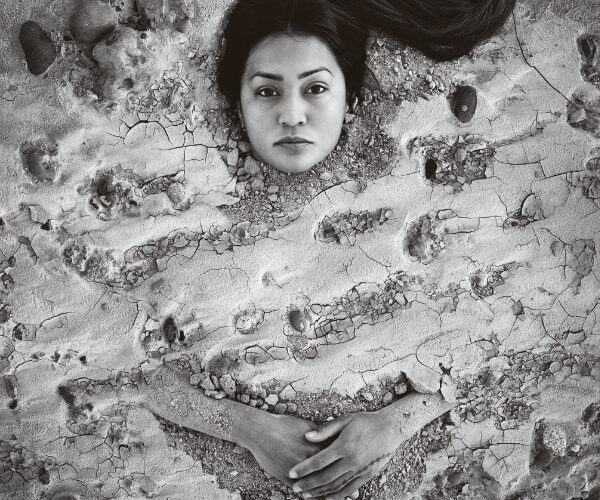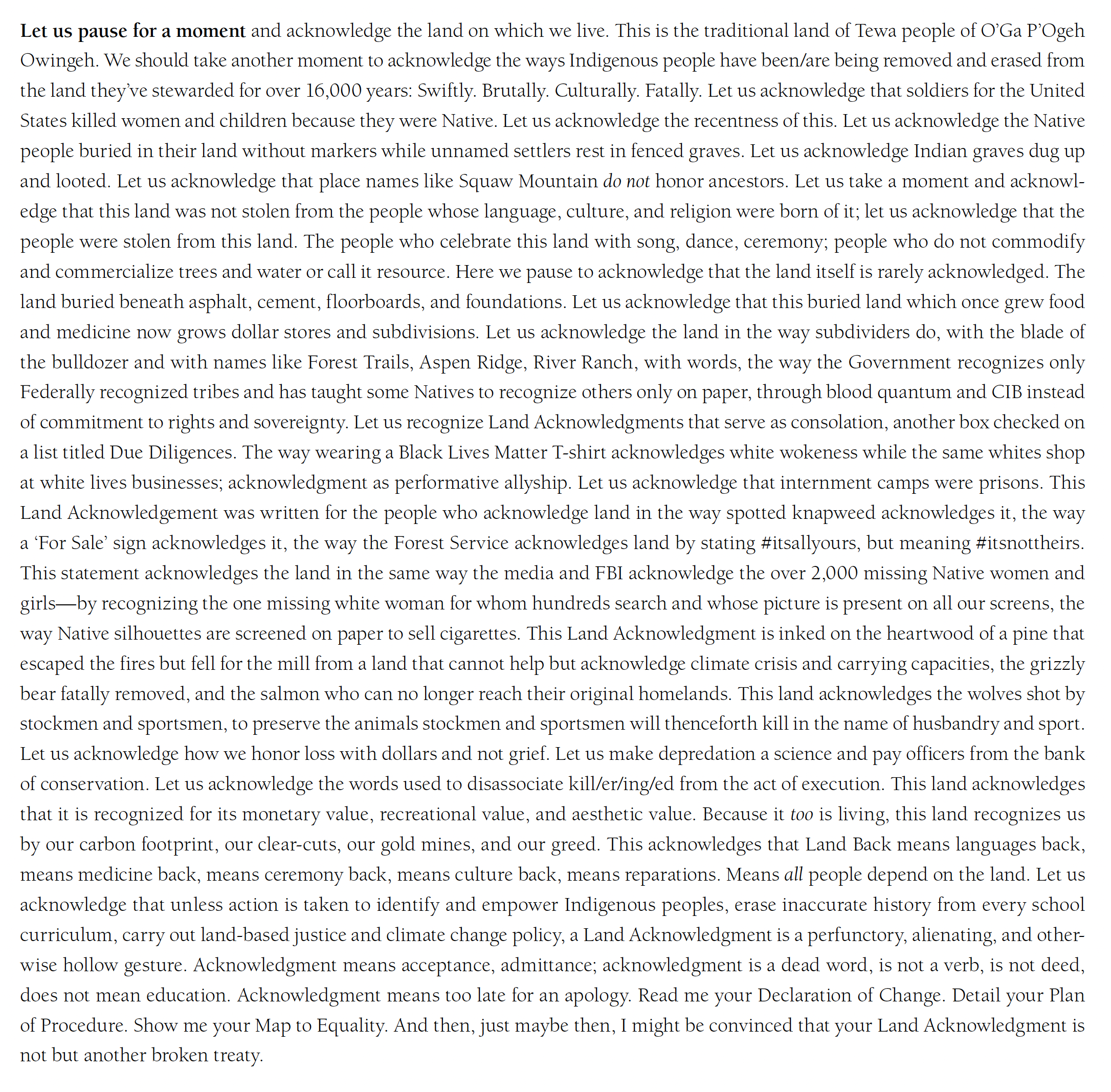A poem to acknowledge that the land itself — along with the people whose language, culture and religion were born of it — is rarely acknowledged
 Cara Romero, Sand & Stone, 2020. Photograph. 19 × 12 ¾ inches. © Cara Romero. Courtesy of the artist. All rights reserved.
Cara Romero, Sand & Stone, 2020. Photograph. 19 × 12 ¾ inches. © Cara Romero. Courtesy of the artist. All rights reserved.
BY CMARIE FUHRMAN

—
CMarie Fuhrman is the author of Camped Beneath the Dam: Poems and co-editor of Cascadia: Art, Ecology, and Poetry, and Native Voices: Indigenous Poetry, Craft, and Conversations. She has published or forthcoming poetry and nonfiction in multiple journals and anthologies. CMarie is an award-winning columnist for the Inlander and Director of the Elk River Writers Workshop. She is Associate Director at Western Colorado University, where she teaches nature writing. CMarie is the host of the podcast Terra Firma. She resides in the Salmon River Mountains of Idaho. CMarieFuhrman.com
